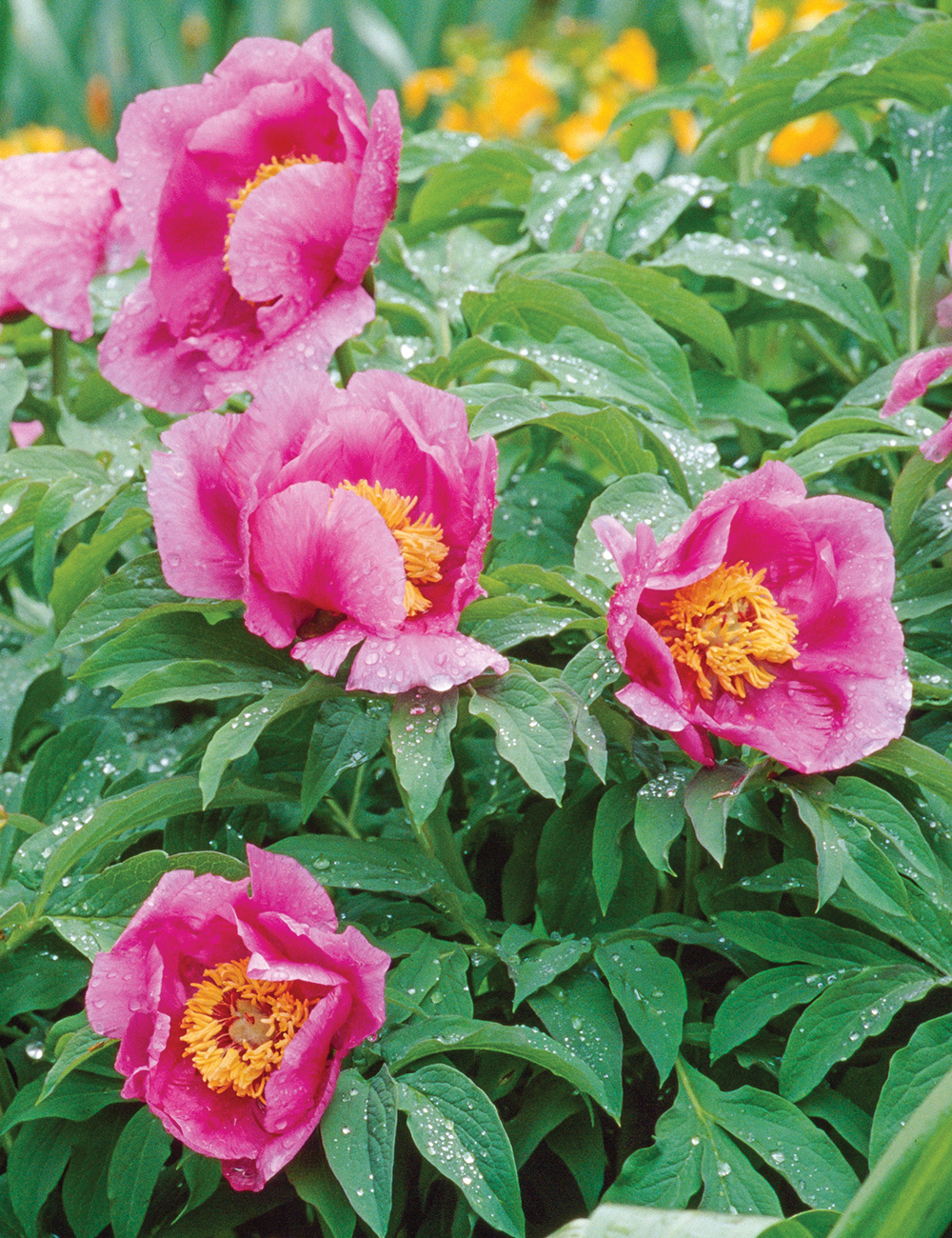

Tree Peony 'Jade Pink Lotus'
Enduring beauty.
This product is currently out of stock and unavailable.




Strong, mid pink bowl shaped blooms to 20cm. The clear colour is beautiful and often remarked upon by our Peony Farmer, Albert. It is more compact and flowers a little earlier than ‘Etienne de France’. The flowers sit proud of the foliage and are clearly visible.
This Chinese type is named 'Yu Chi He Hua', Jade Pond Lotus is the Google translation, at some stage it became known here as 'Jade Pink Lotus'. Early Season.
Tree Peonies bring imperial splendour to your garden. They also make wonderful cut flowers. They are a great choice for small gardens, because they are so slow growing, long lived, don’t take up much space and the flowers are a great focal point. They are great for large gardens too, because of their lasting display and once established they can be left to their own devices and you can take that time to care for other plants.
Tree Peonies look exotic and temperamental, and yet they are pretty hardy, and grow well in Cool to Temperate Australian gardens that receive frosts.
Tree Peonies will take one to three years to bloom depending on conditions.
Tree Peonies need cold winters and hot summers for best flowers. We recommend you treat your Tree Peonies a bit like hungry teenage boys and feed them well! Anzac Day and Cup Day are easy ways to remember when. They like lime, and lot’s of it, so be sure to indulge them. Water to establish, then only if rainfall is low. They have impressive dry tolerant once established.
Best planted with protection from the hot afternoon sun and don’t mind a filtered light position, though too much shade will result in less flowers. They need well drained soil and a permanent garden position. Once established they will pretty much take care of themselves, the only pruning you need to do is aesthetic, you just need to add some fertiliser so you can enjoy the best of the blooms, and if the frost is very hard where you live, add a winter mulch.
Tree Peonies differ from Herbaceous Peonies in that they have a woody base that remains year round and which magically transforms into a shrub with the warmth of spring. Peonies on the other hand die all the way back to the ground.
Our Tip: for best vase life, pick your Peonies when the buds are supple and squishy, rather than hard to the touch. A light squeeze of their buds is quick and easy to do. Cut the stem so two sets of leaves remain on the plant, then it can continue to grow and prosper, funnelling energy into the root system.
Supplied as: Bare rooted
Size: na
| Code | PESJL |
|---|---|
| Botantical name | Paeonia suffruticosa |
| Height | 70-120cm |
| Width | 70-120cm |
| Flowers | Early season - Spring to Summer |
| Climate | Cool to Mediterranean |
| Availability | Australia wide |
| Frost hardiness | Fully Hardy |
| Aspect | Full Sun to Semi Shade |
| Supplied as | Bare rooted |
| Size | na |
| Water needs | 2 |

